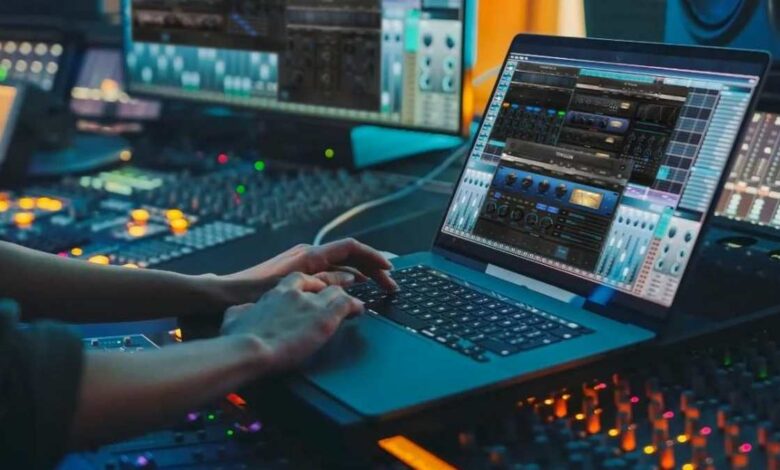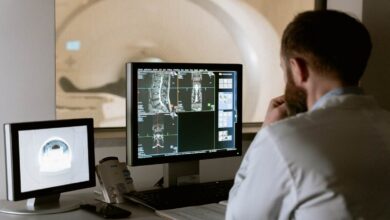
The entertainment industry has always been at the forefront of technological innovation, constantly pushing the boundaries of what is possible. In recent years, Digital Signal Processing (DSP) services have emerged as a driving force in transforming audio experiences across various entertainment platforms. From music production and live performances to virtual reality (VR) and augmented reality (AR) experiences, DSP services are revolutionizing the way we perceive and interact with sound. This article explores the future of DSP services in entertainment and how they are powering next-generation audio experiences.
The Evolution of Audio Technology
Throughout history, advancements in audio technology have significantly shaped the entertainment landscape. From the invention of the phonograph and the introduction of stereo sound to the rise of digital audio formats and surround sound systems, each innovation has contributed to more immersive and captivating audio experiences.
In recent decades, digital technologies and DSP have played a pivotal role in audio processing and manipulation. DSP services leverage the power of digital algorithms to analyze, transform, and enhance audio signals, opening up a new realm of possibilities for audio creators and consumers alike.
The Emergence of DSP Services in Entertainment
DSP services in entertainment have gained traction due to their ability to enhance audio quality, create unique effects, and provide customizable experiences. As digital audio platforms have become more prevalent, DSP services have evolved to cater to the demands of the entertainment industry, offering a wide range of audio processing tools and real-time effects.
Key Advancements in DSP Services
1. Real-Time Audio Effects
DSP services provide real-time audio effects that musicians, DJs, and sound engineers can apply during live performances, studio recording sessions, and even in consumer-grade devices like smartphones and audio players. From reverb and echo to pitch-shifting and time-stretching, real-time audio effects enrich the sonic experience in various entertainment contexts.
2. Spatial Audio and Surround Sound
DSP services are instrumental in creating spatial audio experiences, where sound sources are positioned in a three-dimensional space around the listener. Spatial audio techniques, such as binaural rendering and Ambisonics, enable immersive audio experiences in virtual reality, gaming, and cinema, enhancing the sense of presence and realism.
3. Noise Reduction and Audio Restoration
DSP services play a crucial role in audio restoration, rescuing old and degraded audio recordings by reducing noise and enhancing audio clarity. These services are invaluable for preserving historical audio recordings and improving audio quality in various entertainment archives.
4. Personalized Audio Experiences
With the advancement of AI and machine learning, DSP services are increasingly being used to offer personalized audio experiences to users. These services analyze individual listening preferences and adapt audio content to match the user’s taste and audio equipment, delivering tailored audio experiences for each listener.
5. Audio Synthesis and Virtual Instruments
DSP services contribute to the creation of virtual instruments and synthesizers that mimic real-world instruments, enabling musicians and composers to access a vast array of sounds and effects in their creative process.
Future Directions of DSP Services in Entertainment
1. 3D Audio and Object-Based Audio
The future of DSP services in entertainment lies in further advancing 3D audio technologies and object-based audio. Object-based audio allows audio content to be represented as individual audio objects with associated metadata, enabling dynamic rendering based on the listener’s position and playback environment. This technology will facilitate truly personalized and interactive audio experiences across a wide range of entertainment platforms.
2. Augmented Reality (AR) Audio
As AR experiences become more prevalent, DSP services will play a central role in creating spatialized audio that accurately reflects the user’s surroundings. AR audio will enable virtual audio objects to interact seamlessly with the physical environment, enriching AR applications in gaming, education, and real-time audio tours.
3. AI-Driven Audio Effects
Advancements in machine learning will lead to the development of AI-driven audio effects that adapt and respond to the audio content and the listener’s preferences in real-time. AI-powered DSP services will automatically optimize audio quality, spatialization, and effects to match the specific context and user requirements.
4. Haptic Audio Feedback
DSP services will be integral to creating haptic audio feedback, where audio vibrations and tactile sensations are synchronized to audio content. Haptic audio will enhance immersion in gaming, VR experiences, and interactive entertainment, offering a multi-sensory audio experience.
5. Cloud-Based Audio Processing
With the growth of cloud computing, DSP services will be increasingly available as cloud-based solutions, allowing real-time audio processing and streaming across various devices. Cloud-based DSP services will reduce hardware requirements for users and enable seamless integration with online entertainment platforms.
Applications in the Entertainment Industry
1. Gaming and Virtual Reality
DSP services are at the forefront of enhancing audio experiences in gaming and VR. Real-time audio effects, spatial audio, and object-based audio create a more immersive and realistic gaming environment, heightening player engagement and enjoyment.
2. Music Production and Audio Post-Production
In music production, DSP services are essential for mixing, mastering, and adding creative effects to music tracks. For audio post-production in film and television, DSP services enable precise sound editing, sound design, and immersive audio formats for cinema.
3. Live Performances and Concerts
In the realm of live performances, DSP services provide sound engineers and performers with the ability to control audio effects and spatialization in real-time, elevating the quality of live concerts and events.
4. Audio Streaming and Digital Audio Players
In the era of audio streaming services and digital audio players, DSP services optimize audio quality and enable personalized audio experiences for users, delivering high-fidelity sound tailored to each listener.
5. Audio Tours and Cultural Heritage
DSP services have a profound impact on audio tours and cultural heritage applications, where spatial audio and AR audio create interactive and educational experiences for visitors in museums, historical sites, and art installations.
Conclusion
The future of entertainment is set to be revolutionized by the convergence of Machine Learning and Digital Signal Processing. DSP services have already made significant contributions to audio processing in various entertainment contexts, enhancing audio quality, spatialization, and personalized experiences.
As technology continues to advance, we can expect further developments in 3D audio, object-based audio, AI-driven audio effects, haptic audio feedback, and cloud-based audio processing. These innovations will drive the evolution of entertainment, enabling more immersive, interactive, and personalized audio experiences across gaming, music, virtual reality, and beyond.
DSP services are becoming increasingly accessible, allowing audio creators, developers, and entertainment providers to harness the power of advanced audio processing tools. With the transformative capabilities of DSP services, the future of entertainment is poised to be an audio revolution, providing audiences with unforgettable and dynamic audio experiences that transcend conventional boundaries.


